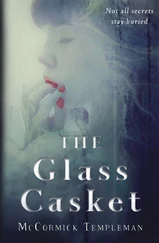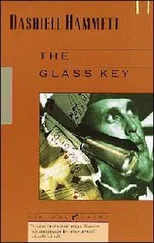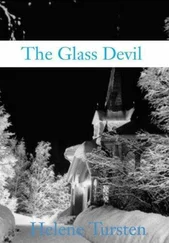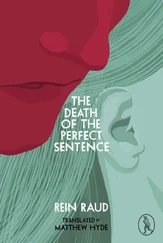Sophia frowned. “Timeplace?”
“The meeting of a particular place and time.”
“These are maps? They don’t even have anything on them. They’re just blank rectangles.”
Shadrack went to one of the bookcases and ran his hand along the spines of the books. When he found the volume he was looking for, he took it off the shelf and thumbed through its pages. “Here!” he said. He laid the open book on the table. “This is what you’re imagining, am I right?”
Sophia saw that the book was open to a map labeled “City of Boston.” The familiar shape of the city, with its neighborhoods and waterways and principal roads and rail lines lay before her. “Yes,” she said. “That’s a map.”
“Now, what would you say if I told you that each of these ‘blank rectangles,’ as you call them, has more information—a hundred times more information—than this paper map? They not only map the place, they map the time of Boston in February of 1831.”
Sophia furrowed her brow. “Do you mean like how I map things in my sketchbook?”
“Yes, very much like your clever way of recording time through drawings and words. Although in these maps, you won’t see pictures and words; you’ll see animate impressions of what was happening then and there. It will feel as though you are actually there.”
She let out a breath of astonishment. “How?”
He smiled. “I can promise you that, with practice, you will not only be able to read every map in those cabinets; you will even be able to make your own.” He pulled out a chair. “Have a seat,” he said. “And give it a try.”
Sophia sat down eagerly and looked expectantly at the four rectangles lying before her.
“What do you think the first step is?”
She looked up at him in astonishment. “You mean you’re not going to tell me?”
He smiled. “That would defeat the entire purpose. As I said, it’s not skill that’s required—it’s the ability to think about things differently. If I tell you, you will simply memorize the method. If you have to discover it for yourself, you will understand how to apply the principle you learn. When we are out in another Age, confronted by a map neither of us understands, we’ll need as much inventive thinking as both of us can muster. Memorizing won’t help.”
“But I have no idea how this works!”
“Perhaps not at first,” Shadrack said. “But you have imagination, and it will come to you. I’ll give you a starting point. And this is at the heart of lesson one—a lesson about paper.” He sat down in a chair beside her. “Paper maps are valued all across the Ages for good reason. They’re durable, they’re unchanging, and they’re accessible to anyone who picks them up. That has its uses. But other kinds of maps, while harder to read and in many cases more fragile, are also more dynamic and better at keeping secrets. Those qualities go hand in hand. A paper map is always there, but other maps—well, they sleep most of the time. Something you do has to wake them up so they can be read.”
Sophia shook her head, utterly perplexed.
“Trust me, this will be useful,” Shadrack said, getting up. He walked toward the stairs. “Now I have to go finish the letters I was writing on behalf of Mrs. Clay so that they go out with the morning post, and I want to enquire about Carlton. I’ll be back soon to check on your progress,” he said warmly.
After he had gone, Sophia took a deep breath and looked at the objects spread out before her on the table. She ignored the book and concentrated on the four blank rectangles, all with the mysterious words, “Boston, February 1831,” in the bottom righthand corner. What did Shadrack mean about “waking up” the maps? And that the maps showed the time as well as the place? How was such a thing possible? She tentatively picked up the metal sheet. It felt cool to the touch and surprisingly light, and she saw herself faintly reflected in the ochre metal. But no matter how much she stared, nothing on its surface changed.
She put it down and picked up the clay tablet. She turned it over; it was just as blank on the back. The glass sheet was more opaque than she had realized at first. She gazed down onto its milky surface and watched her blurry reflection grow larger. Finally, she picked up the piece of linen by the corners and held it up before her face. “What’s inside you, little handkerchief?” she murmured. “Why won’t you say anything? Wake up, wake up.” Nothing happened. She let out a sharp sigh of frustration. The piece of linen fluttered briefly, and as it settled once again something remarkable happened.
The surface started to change. Slowly, lines began to draw themselves across it. Sophia stared, wide-eyed, as the edges filled with scrollwork and a map appeared in the center of the cloth.
1891, June 15: 9-Hour 22
It took decades, after the Disruption, for cartology to assert itself as the most important form of scholarship in New Occident. But as it absorbed the field of history and became essential to the country’s efforts at exploration, cartology became the single most important area of scholarly work. What always remained a specialized—even marginal—focus within the broader field, however, was the study of how the other Ages practiced cartology.
—From Shadrack Elli’s History of Cartology
SOPHIA DROPPED THE linen on the table and ran to the base of the stairs. “Shadrack, come look!” she shouted. “Something happened!”
“All right,” he called down to her. “Let’s see what you’ve got.”
She rushed back to the table to make sure the image was still there; it was. The fine, colored lines on the map looked as though they’d been drawn in ink. On the right-hand side, the legend consisted of two pale blue clocks: the first was numbered from one to twenty-eight, the second was an ordinary twenty-hour clock. A detailed web of brown and green filled the center of the linen, creating the familiar shape of the city of Boston. The borders, drawn in gold, repeated an inscrutable pattern of scrollwork and mysterious symbols.
“So how did you discover it?” Shadrack asked, sitting down next to her. He had brought a glass of water, which he set down at a good distance from the maps.
“I’m not sure. I think I breathed on it.”
He smiled, stroking his chin. “All right, good enough. We often discover things by accident. The cloth maps respond to air. A breeze, a gale, a breath—it’s all the same. The reason they respond to air is because they’re weather maps. You can draw anything on a cloth map, but what they show most clearly are weather patterns. This one shows the weather for Boston in February of 1831.”
“But it looks just like an ordinary map. Are those lines the weather?”
“You can’t read it because you haven’t specified a day and time yet.” He pointed to the clocks in the legend.
The clocks had no hands. “These are hours and days?” Sophia asked.
“That’s right. Choose one.”
“How?”
“Well, the traditional way is to use your fingers. But you can use all kinds of things—beads, pins, things like that. I like these.” He went to the closest bureau and removed a small, leather-bound box. Inside it were ordinary pebbles—all of them smooth and smaller than a fingernail.
“Oh, I see!” Sophia said excitedly. She placed a pebble on the day-clock’s 8 and another on the hour-clock’s 9. Nothing happened.
“Nine in the morning on February 8, 1831,” Shadrack murmured. He took a sip of his water.
Sophia squinted at the map. “I still don’t see anything.”
Shadrack looked at her keenly. “Before you look at the weather for February eighth, let me tell you about an important difference between these maps and the maps you’re used to. These are memory maps. They are not just one cartologer’s impression of this place and time. They hold the collected memories of real people. They’re histories. Some maps hold the memories of one person, others hold the memories of many. This map, for example, holds the memories of hundreds of people who were living in Boston in February of 1831.”
Читать дальше












